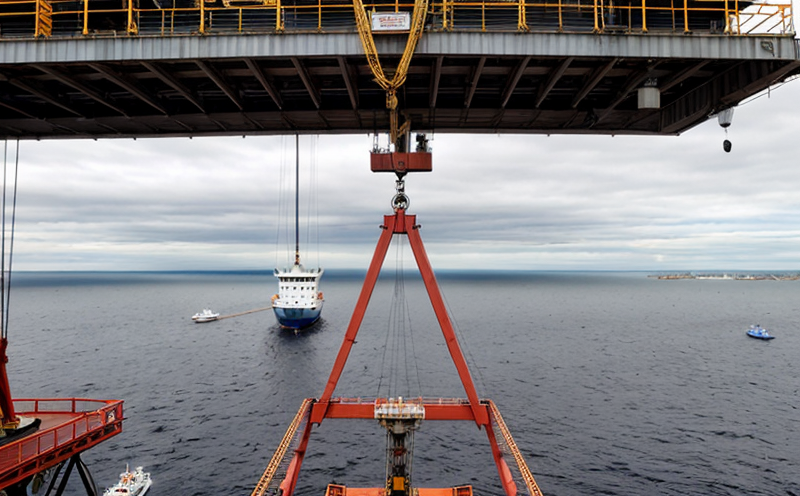Ship deck crane inspection
The inspection of ship deck cranes is a critical aspect of ensuring maritime safety and compliance with international standards. Ship deck cranes are essential machinery used to load, unload, and transport cargo on ships, making their proper functioning vital for the operation of ports and shipping lines worldwide.
These cranes operate under harsh environmental conditions, including exposure to saltwater, extreme temperatures, and varying loads. Regular inspections help prevent potential failures that could lead to accidents, damage to equipment, or even loss of life. Compliance with international standards such as ISO 23415:2017, ASME PMA-2019, and EN 369 is crucial for ensuring the reliability and safety of these cranes.
Our team at Eurolab specializes in providing comprehensive inspections that meet the highest industry standards. We use advanced non-destructive testing (NDT) techniques to ensure no hidden defects are overlooked. Our services include visual inspection, ultrasonic testing, magnetic particle testing, and eddy current testing, among others.
During an inspection, we carefully examine every component of the crane system, from the lifting hooks to the electrical systems. We also assess the integrity of the structure, ensuring that it can withstand the stresses imposed by daily operations. Our detailed reports provide a clear picture of the condition of the equipment and recommend necessary repairs or replacements.
The importance of regular inspections cannot be overstated. A single failure in a ship deck crane can have severe consequences. Therefore, our approach is meticulous and thorough to ensure that all potential issues are identified before they become critical problems.
Why It Matters
The integrity of ship deck cranes directly impacts maritime safety and efficiency. Cranes that operate safely reduce the risk of accidents, which can lead to significant financial losses due to downtime or even legal liabilities. By conducting regular inspections, shipping companies can maintain optimal performance levels and extend the lifespan of their equipment.
Compliance with international standards ensures that all aspects of crane operation meet rigorous safety requirements. This not only enhances operational reliability but also demonstrates a commitment to responsible practices within the maritime industry. Regulatory bodies such as the International Maritime Organization (IMO) mandate these inspections, emphasizing their importance for public and environmental safety.
From an economic perspective, timely maintenance and inspection translate into reduced repair costs and increased productivity. Ships that are equipped with reliable cranes can operate more efficiently, leading to lower fuel consumption and operational expenses. Additionally, compliant operations reduce the risk of fines or penalties from non-compliance inspections by regulatory authorities.
Industry Applications
Industry Applications:
- Container ports
- Fisheries and aquaculture
- Oil and gas platforms
- Offshore wind farms
| Application | Description |
|---|---|
| Container ports | Handling heavy containers with precision and safety. |
| Fisheries and aquaculture | Loading and unloading of fish products, ensuring fresh produce is delivered promptly. |
| Oil and gas platforms | Maintaining critical equipment for extraction and transportation operations. |
| Offshore wind farms | Transporting heavy components to remote locations efficiently and safely. |
Eurolab Advantages
At Eurolab, we pride ourselves on offering the most advanced inspection services for ship deck cranes. Our team of experts is well-versed in international standards and possesses extensive experience in maritime inspections.
- Comprehensive Inspections: We cover all critical components, ensuring no detail is overlooked.
- State-of-the-Art Equipment: Utilizing the latest NDT technologies to detect even minute flaws.
- Detailed Reporting: Providing clear and actionable reports that guide maintenance decisions.
- Regulatory Compliance: Ensuring all inspections meet international standards, including ISO 23415:2017 and ASME PMA-2019.
We work closely with our clients to understand their specific needs and tailor each inspection accordingly. Our goal is not only to provide a thorough service but also to offer valuable insights that contribute to the long-term success of your operations.





